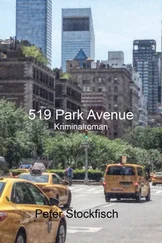He always just let it go. Of course he was worried. You’re here now, Tineke would say. We are in California. Menno only quit haranguing him after Margriet died. After that they had only the occasional telephone conversation, Menno moaning and groaning about his role as Wilbert’s guardian, he as the disillusioned father trying to get out of his alimony obligations. Businesslike exchanges, the enmity of the past electrically dormant on the phone line.
Here he comes. His ex-brother-in-law, backlit by the glare that cut in through the tall front windows of the theatre, stepped onto the dais and stopped in front of him. You’d almost expect to see him holding a UPS clipboard, or wonder whose chauffeur he was, what was this guy doing coming after his boss? Straight as an arrow, arms dangling alongside his bony body, his weight on the balls of his feet, just like he used to take his place on the mat: here I am, just try me. No handshake.
“Menno,” said Sigerius.
Wijn pulled in his chin. “Doing all right for yourself, I see,” he said in the same tacky accent they spoke back in Wijk C, forty years ago. “I was passing by. I’ve come to tell you your son’s free.”
Sigerius cleared his throat. “ What? ”
“Reduced sentence. On accounta good behavior. He’s already out.”
At times, language can have a physical effect on him, ice-cold water being dumped over him from meters above his head. “Aw no,” he muttered. “Now that is news. Bad news.”
Wijn picked at a penny-sized scab on his cheek, no doubt the remnants of a blister he’d got himself from scraping across a judo mat, a self-conscious gesture that made him look, for a brief moment, like his dead sister. His middle finger was missing its nail. A blind finger.
“Just thought I’d let you know. And tell you that I wash my hands of ’m.”
“He was supposed to be locked up until 2002.” Tineke. She stood glowering at Wijn with eyes like pistols, but he ignored her, just like he’d been ignoring her for the past twenty-five years.
“Where’s he going to live?” Sigerius asked.
“Dunno. Don’t give a shit.”
Then they stood there looking at each other in silence, the rector and the gym coach. Two guys in their fifties who used to stand in the shower room together, three times a week, year after year, after having mixed their sweat on dojos all over the west coast of Holland. It hadn’t been of any use. Suddenly, without provocation, Wijn brought his hand to Sigerius’s forehead and gave him a rough little jab with that mole finger of his.
“Dog,” he snarled.
Before Sigerius could realize he mustn’t respond, before he realized he was not in the position to pick the man up high and crosswise by his polyester collar, hurl him back down and, growling, yank him back up — strangle him on the spot, as big and nasty as he was — Wijn walked off. Without looking further at anyone, he shambled in his cheap, ill-fitting suit past the row of laureates and stepped off the podium with a hollow thud.
Later he thought: maybe this is all Wijn’s doing. That claw of his, that dirty stinking finger. That it made him start looking at things differently. A cue of flesh that put a spin on his thoughts.
The fact was, not a minute later he spotted Joni and Aaron in the receiving line, his daughter beside her bald boyfriend, admiringly and attentively listening to him. What did he notice? Nothing in particular, at first. That she looked gorgeous, she had a stunning profile. That she knew exactly what to wear when her old man was up front. Today she had chosen a white wool turtleneck sweater, snug but classic, white gold sparkled in her ears and around her wrists. He was struck, not for the first time, by how smartly she could dress, more expensively, more well-put-together than other students — never prim, you couldn’t make Joni prim even if you buried her in pearls, but chic, classy . She had tucked her entire head of hair under a cap, a sort of Russian Nikita thing, so only the back of her neck betrayed her blondness.
The next moment he leaned over so he could hear the soft-spoken, silvery-gray wife of an ex-rector. His eyes wide open and his head alongside her elongated ear, he caught sight of Joni, more or less by coincidence; he smiled and winked but she did not see him. Her beautiful face was concentrating on something else, probably on her mother next to him.
Then he sees it. The dark-brown Siberian cap above Joni’s face jogs something in his memory. Apparently his mouth produces a sound, a sigh or a groan, or something, because the woman whose ear it enters shrinks back. He straightens himself, nods absently, opens his mouth wide and snaps it back shut. The resemblance penetrates his consciousness as something hot, as a liquid that attempts to smother him. Boiling lead. He is dizzy. The phenomenal ability of the brain to recognize faces, effortlessly, unhesitatingly. It has always fascinated him, but now it is killing him. It is not even recognition, it is far more, on all fronts. What he experiences is … identification . Joni’s attentive expression, five, six meters away, the dark fur hat whose brim lies across her smooth forehead so that he sees her, for the first time, as a brunette . The make-up, heavier than usual, the glossy lips parted in concentration. All her features, the broad purity of her compelling, self-assured face, everything that determines the way his daughter looks, shifts over that other face, a face that he, in a sense, also knows like the back of his hand — until his perspiring brain goes “click.” It’s her .
“Siem, darling — are you OK?” Tineke’s cool hand grabbed him by the wrist, she made an effort to look at him. He didn’t focus properly, he saw the grainy structure of her purple eyeshadow, heard her say that he looked pale, that he hadn’t been getting enough sleep the last few weeks. She gave his shoulder a squeeze, took a step forward and said something to the woman in front of him. He stared at Tineke’s broad back, wrapped in the purple gown she’d had specially made for this afternoon.
“Tomorrow you’ll be sitting on a plane to Shanghai,” she whispered, once she was next to him again. “We’re in the home stretch. You’re doing great. You were just thrown off by that news about Wilbert. I can tell.”
His protectress, the lovingly bowed second violin, it is the role Tineke has been playing ever since he lay like a shipwreck on the Antonius Matthaeuslaan and she came upstairs to join him for coffee. Then, too, she talked him through his depression, consoled the inconsolable with cheerful empathy. And now, once again, that endless understanding, although this time, thank God, she didn’t have an inkling as to what it was about.
“Yeah,” he mumbled. “It worries me. I hate that man. And I hate my son.”
“I know you all too well,” she said. “Forget that boy. Forget both of them. That Menno is nothing but 100 kilos of rancor. He came here deliberately, just to rile you. They’ve released Wilbert because he’s ready to return to society.”
Of course Tubantia University’s anniversary celebration was bigger than himself, a figurehead is attached to the prow, and the prow to the ship; everything else went as planned that Thursday, starting with the ceremonial dinner in Koetshuis Schuttersveld, where he found himself, smiling, once again at the head of the table. Calm down! hissed a pinched voice in his head during the toasts to the academy, during the supper of red bass, during his own speech. He thought: it’s impossible. It’s statistically impossible, it’s morally impossible, it’s logistically impossible. He knocked back goblets of white wine to drown out the heckling in his brain. He and Tineke arrived back at the farmhouse, reeling, at half-past one in the morning, and when he flopped down beside her in bed, his back to her, he sank into a raccoon-like slumber. He hadn’t given his son’s release a moment’s thought the entire evening. All he could think about was Joni.
Читать дальше












